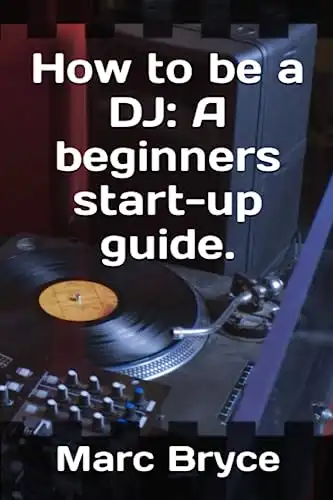We may receive compensation when you click on product links from our partners. For more information, please see our disclosure policy.
Last Updated on July 10, 2023
Music is a powerful marvel that can cut through cultural differences and continues to bring the world closer together. The phenomenon of music is described as a form of sound art that is governed by the elements of melody, pitch, harmony, and rhythm. It is also associated with the qualities of articulation, tempo, meter, texture, and timbre.
There are varying definitions of music from country to country and culture to culture, but it is largely agreed that music is a pleasant sound with the effect of enhancing the mind and lifting it to a higher plane of experience.
The word music comes from the Greek word mousike and is translated as “art of the muses”. Today, millions wish to walk in the footsteps of the ancient muses and make music their primary focus and
The following is a look into some music careers that helps keep this sound phenomenon alive and bring harmony to our lives.
Disc Jockey
A disc jockey is also commonly known as a DJ or a deejay. Since music is an integral part of our lives, the need for a disc jockey is always great. In short, a disc jockey is the life of a party, function, or of a specified airwave. Djs play music at functions or on radio stations to entertain the crowd or audience. Their music is fashioned according to the persons listening and most DJs have a wide repertoire of songs that they design to suit the audience present. In some instances, disc jockeys are known for playing one particular type of music or blending a few styles into their unique variety.
This book is a comprehensive guide designed to help aspiring DJs like you embark on their DJing journey with confidence. It covers everything you need to know, from the basics of setting up your DJ equipment to advanced mixing techniques and strategies for promoting yourself as a DJ.
These entertainment experts can play anywhere music is required, such as weddings, birthday celebrations, social gatherings, award ceremonies, community events, and parties. At such functions, a DJ can choose to build excitement in the crowd by interacting with them in-between spinning music.
There are dozens of vocations within the sphere of music that ranges from those that are considered more informal such as disc jockeys, to those that are deemed 'high art' such as an orchestra conductor or composer.Click To TweetTo be a successful disc jockey, an individual should have an in-depth knowledge of several genres of music and be up to date with the current trends in the industry. The person should also have the skill to choose the appropriate songs based on the type and needs of the client, the occasion, and the venue. A good disc jockey will know how to mix different music types to keep the music flowing for long periods.
Orchestra Director
Sometimes called a conductor, an orchestra director is the music professional who guides an orchestra throughout its performance. The orchestra director ensures that the musicians are both interpreting the musical score correctly, and uses hand signals and body language to let the orchestra members know when it is time to emphasize a particular part of the song. The orchestra director also helps ensure there is harmony and unity of movement within the orchestra’s performance.
Outside of the actual performance of the orchestra, the orchestra director chooses appropriate scores in keeping with the orchestra’s abilities and might make adjustments to scores to create a special arrangement for his group of players. The orchestra director also acts as manager of the group and is responsible for
A successful orchestra director is both skilled and educated in the field of music. Usually such a professional will have several degrees in music, including postgraduate degrees in music and conducting. Generally, an orchestra director will have knowledge of a broad range of musical instruments and will be able to play one or a number of musical instruments. They will also have a good ear for music, be able to sight-read scores and be familiar with the history of music and the music industry as a whole.
Good
Music teacher
It can be said that music teachers are the creators of many musical careers and perhaps are even responsible for the continuity and ongoing presence of music worldwide. A teacher can touch on one or several areas of a range of musical fields. In that regard, music
The training and education to become a music teacher greatly depend on the type and level of music instruction in which the individual will be involved. Firstly, for any teacher who intends to teach in a school, then they will require, in addition to a
Producer
A producer, specifically a record producer, works in a music-recording studio to produce the perfect sound for the recordings of a band or artist. This person is expected to bring a special ear to song recording and have insight into what the audience expects or wants to hear. The producer can also be involved in arranging or writing parts of the music track.
A producer can either be employed by a studio or be an independent producer. An in-house producer will be paid a fee by the studio and will be representing the policies of the studio as part of his/her job. An independent producer has more leverage with his/her
Some producers begin experimenting at home in makeshift studios and are discovered by the mainstream industry. Other producers begin at entry-level jobs in studios and work their way up to the position by showing skill and creativity in the profession. However a producer begins, the job requires musical proficiency, wide-based knowledge of different music genres, general musical savvy, self-confidence, and above all a good work ethic.




